Chapter 3: But By Jingo If We Do
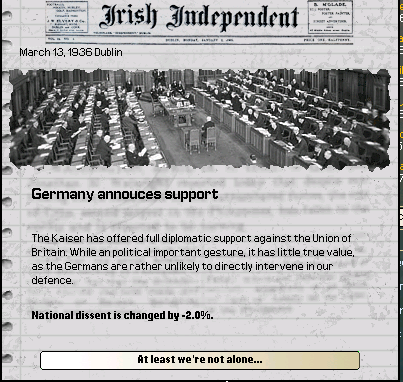
Ireland did not stand alone, though it might have to fight on her own.
One Irishman, at least privately, was relieved. Kevin O’Higgins, however, was finally useful and immediately flew to Berlin to hammer out some agreement with the Reich. The meeting was, while noncommittal, a fruitful one.
It was a public relations dream for the Irish government. O’Higgins landed in Berlin via an awkward round journey through Norway, avoiding France and the UoB. He touched down late at night, to a hurried meeting with the German foreign secretary.
“The dangerous ideology of Syndicalism is once again rattling sabers. The German government is confident that the unlawful Union of Britain is quite unable to prosecute a war against the Republic of Ireland and if they should, President Collins can expect our full support in this manner.”-Werner von der Schulenburg
The German Reich declared that Ireland would be under the protection of MittleEuropa. While not a member, this opened up windows for the Irish government. Rifles, machine guns and better uniforms started to flood into Ireland, in preparation of inevitable war. However. the one thing at the back of O'Higgens mind as he stood for photographs with Werner von der Schulenburg, was that at no point was the potential for armed support even acknowledged.
One may ask, what was the British response? The Daily Herald, one of the many TUC engines of the press, outright denied the incident, claiming it was “More blarney from the Collins dictatorship, clutching to their reactionary mother- Germany!”. The Government likewise denied the incident, claiming implausibly that their ships were actually off the Azores.
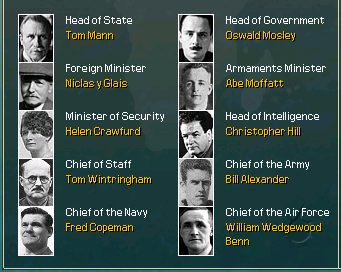
The UoB cabinet was a bitterly divided one
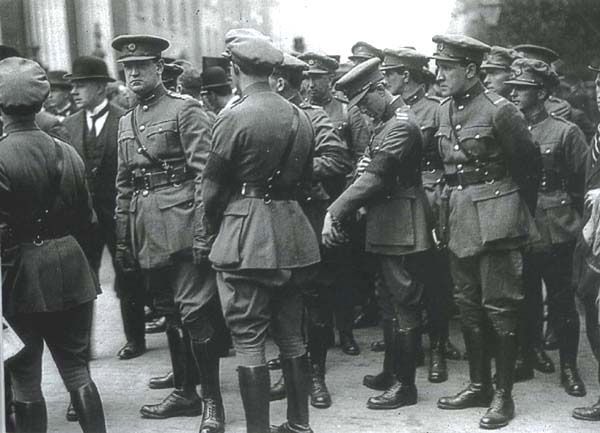
Collins and his officers grimly and nervously awaiting the news from Germany.
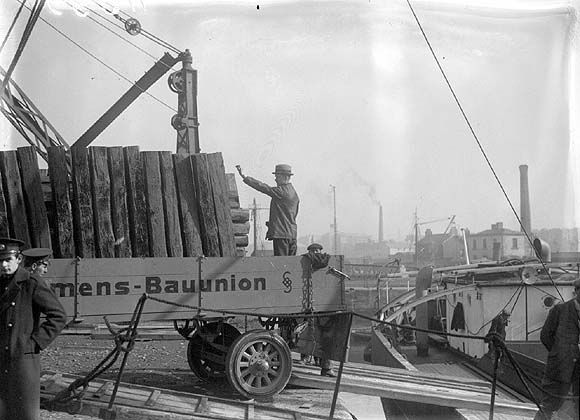
While Irish labour built the Dam, it was German machines that did the heavy work.
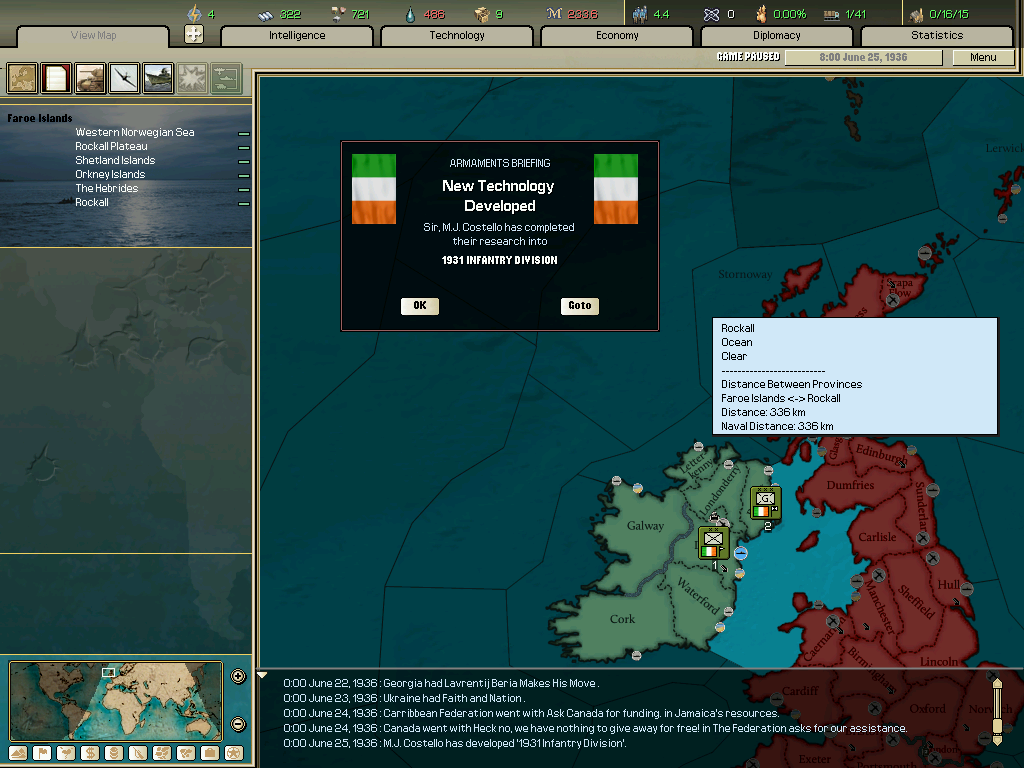
Rapid modernization followed with lucrative deals with Mauser and Krupp.
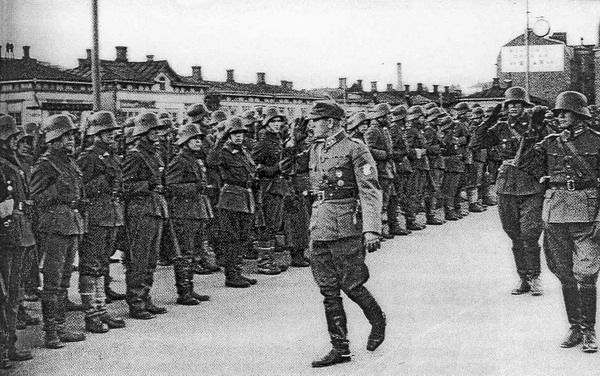
Note the modern helmets and high collared uniforms.
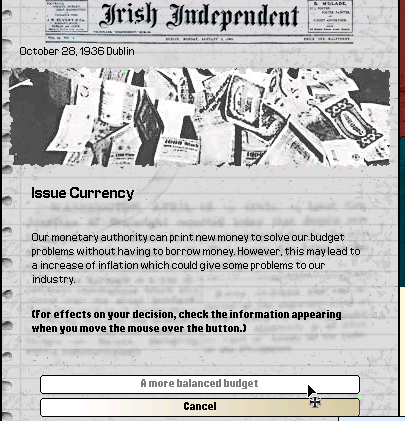
The Irish punt fell in value, but given foreign economic collapse, few noticed abroad.
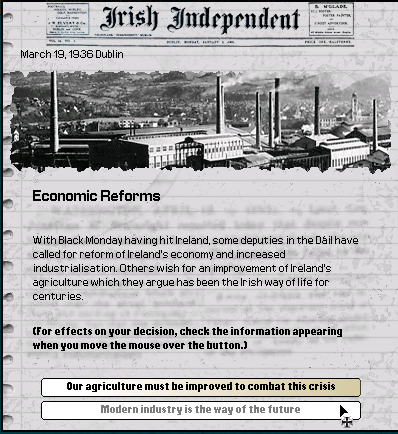
Irish industry received massive boosts in 1936, with factories sprouting like mushrooms after rain.
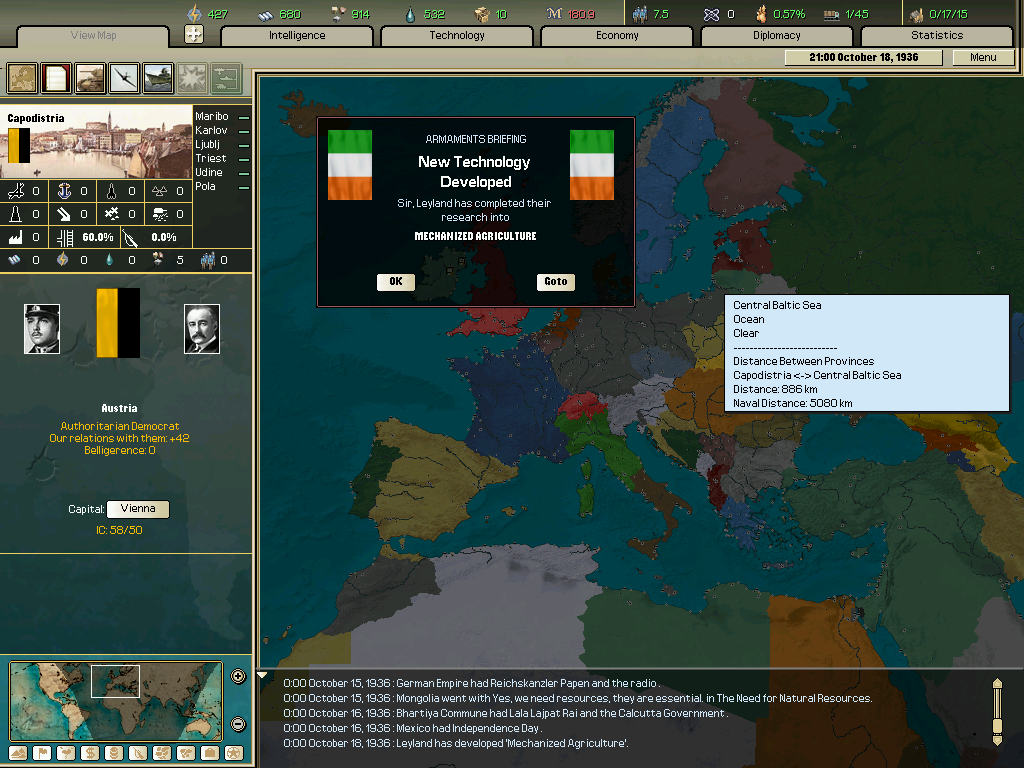
"the sickle has been abolished, fit for Syndicalists, not farms"
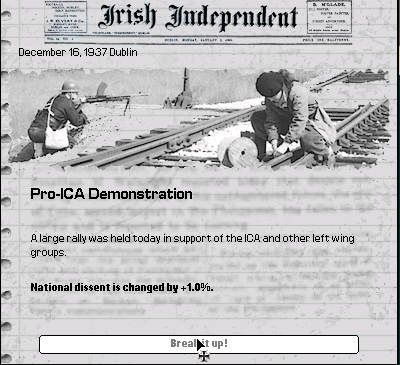
Larkinites and the Gardai clashed repeatedly during the hot summer of '36.
=======================================================================================
His neck ached from the stiff collar as Collins prepared to sleep. The New Year had just passed and the Oireactas was out of session for another week. The year had been a strange one, ups and downs. 1937 would be the finest year yet. Blythe's estimates put Autarky a probability by 1939 at this rate. A war in Europe was possible, and victory to MittleEuropa would only make things better. Ireland would have no part to play in the war. The UoB had bigger fish to fry, such as kissing French arse over the whole summer. Mosley had rallied support, again, and had even beefed up the army for "ousting reactionaries wherever they would be found". Heh. He stretched and placed the pistol on his writing table. The newspapers were spread lazily over them. The Russian Civil War had swallowed up world attention, although the Reds were in full retreat on all fronts. Denikin would retake Moscow within the month. Now there was a man Collins admired. Tough, determined, not swayed by radical sentiment. Unlike O'Duffy's boys.
He lounged in his shirt, the clock ticking onto midnight. It was a fine night, clear and knife-cold. Dublin twinkled merrily, with new streetlamps and freshly repaved roads. The animals gangs still caused bother up in the Liberties, and the UVF had caused ructions again on the 12th, as always. Still.
A knock came at the door. "For Christ's sake, its nearly midnight! What's so bloody important?" he bellowed out, fuming at having his calm broken. The business of the Republic could wait till morning surely?
A pale, drawn IRA man in his uniform opened the door, clutching a piece of paper. The whole building, indeed the streets were coming alive with shouts and curses and panic. The man shook like a leaf.
"What? What is it? Whats happened?" He asked, the man proffering the missal meekly.
Collins read it. Oh no. Oh Jesus no.
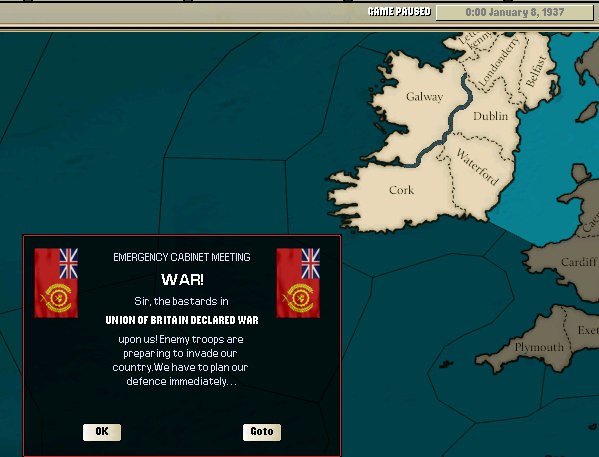
Last edited:
- 1


